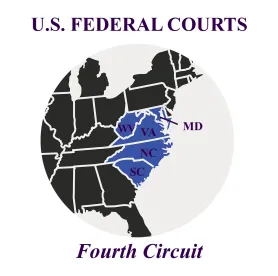The United States District Court for the Eastern District of North Carolina recently provided a good reminder of the applicable standards for both a Rule 12(b)(6) motions based on a statute of limitations defense and motion to compel arbitration.
In Harris v. Piedmont Finance CNAC, 2021 WL 2459797 (E.D.N.C. June 16, 2021), Darryl C. Harris (“Plaintiff”) alleged Piedmont Finance CNAC (“Defendant”) failed to notify him that Defendant reported that Plaintiff’s truck had been repossessed to a credit reporting agency and further alleged that Defendant failed to promptly correct the purportedly inaccurate reporting. Defendant moved to dismiss the complaint based on the statute of limitations and in the alternative, argued that Plaintiff’s claims were subject to a binding arbitration agreement.
In first addressing the statute of limitations defense, the Court liberally construed Plaintiff’s pro se complaint and concluded Plaintiff attempted to assert several “claims” under the Fair Credit Reporting Act (“FCRA”), but the only viable claim was under 15 U.S.C. § 1681s-2(b)(1) for failure to investigate his dispute. Defendant argued this claim was barred by the two (2) year statute of limitation. Importantly, the complaint was “silent with respect to dates or time periods of the alleged conduct in this case.” The Court then noted that it was often not “appropriate” to raise a statute of limitations affirmative defense by way of a 12(b)(6) motion to dismiss unless the “face of the complaint” clearly gives rise to the defense. Although Defendant put forth several facts in the background section of its motion to dismiss that were not contained in the complaint, the Court concluded the Complaint’s silence as to the key dates thwarted Defendant’s statute of limitations defense at such an early stage of the litigation.
The Court then addressed Defendant’s motion to compel arbitration. Plaintiff argued he was not bound by the arbitration agreement because Defendant “breached” the terms of the contract. Citing both United States Supreme Court and 4th Circuit precedent concerning arbitration, the Court concluded Plaintiff failed to put forth any evidence the contract was the result of the fraud, duress, or contained unconscionable terms. Accordingly, the Court found a valid arbitration agreement existed between the parties and that the arbitration agreement covered the current dispute based on the plain language of the arbitration provision.
In the motion to compel, Defendant sought dismissal of the federal lawsuit, however, the Court concluded a stay was appropriate and ordered the parties to provide periodic updates to the Court concerning the status of the arbitration proceedings.
Practice Note: Given the deferential treatment of pro se complaints, especially those involving consumer protection claims, it is difficult to successfully raise a statute of limitations defense by way of a 12(b)(6) motion even if the underlying facts show the claim is time-barred.




 />i
/>i

